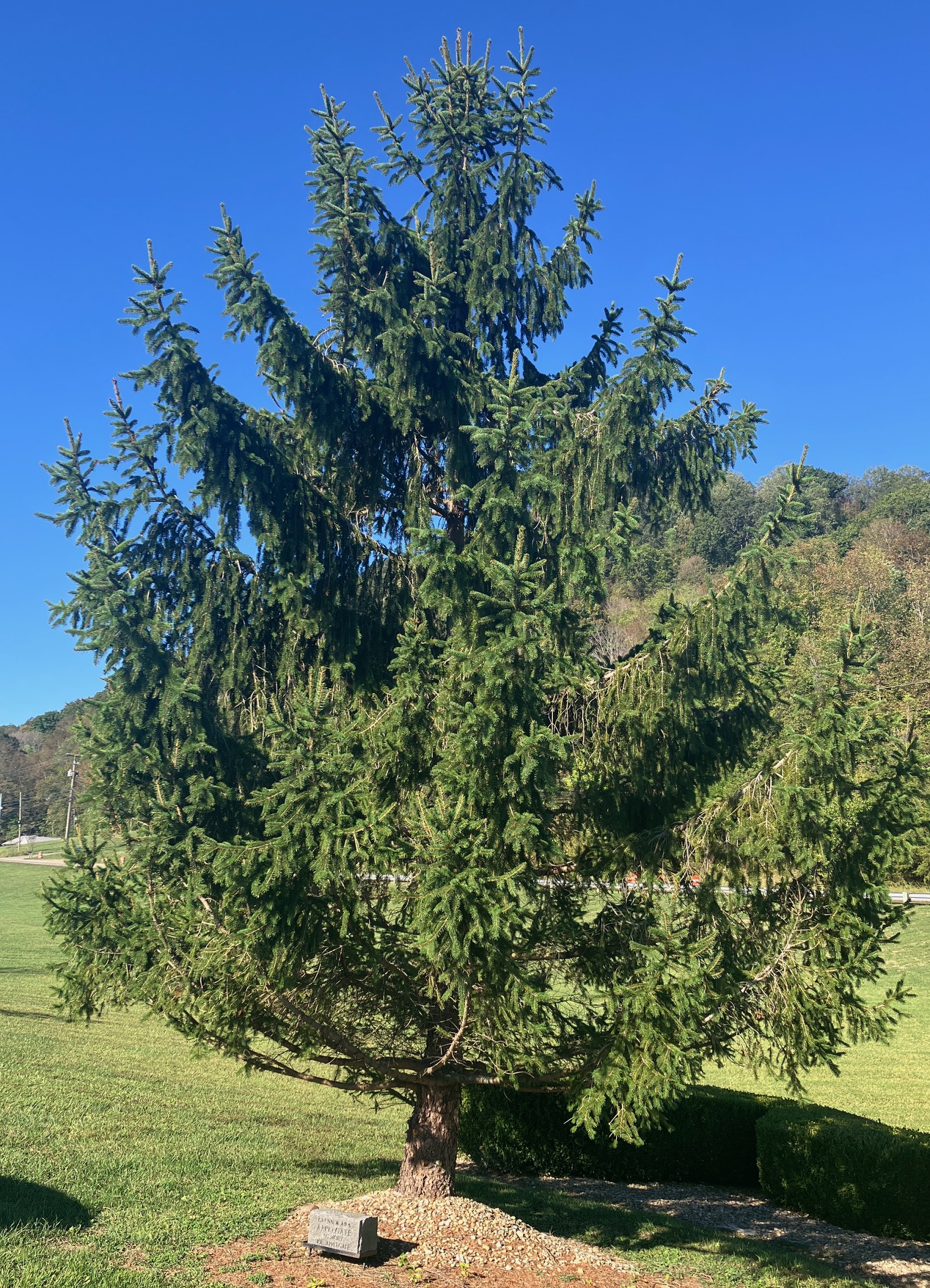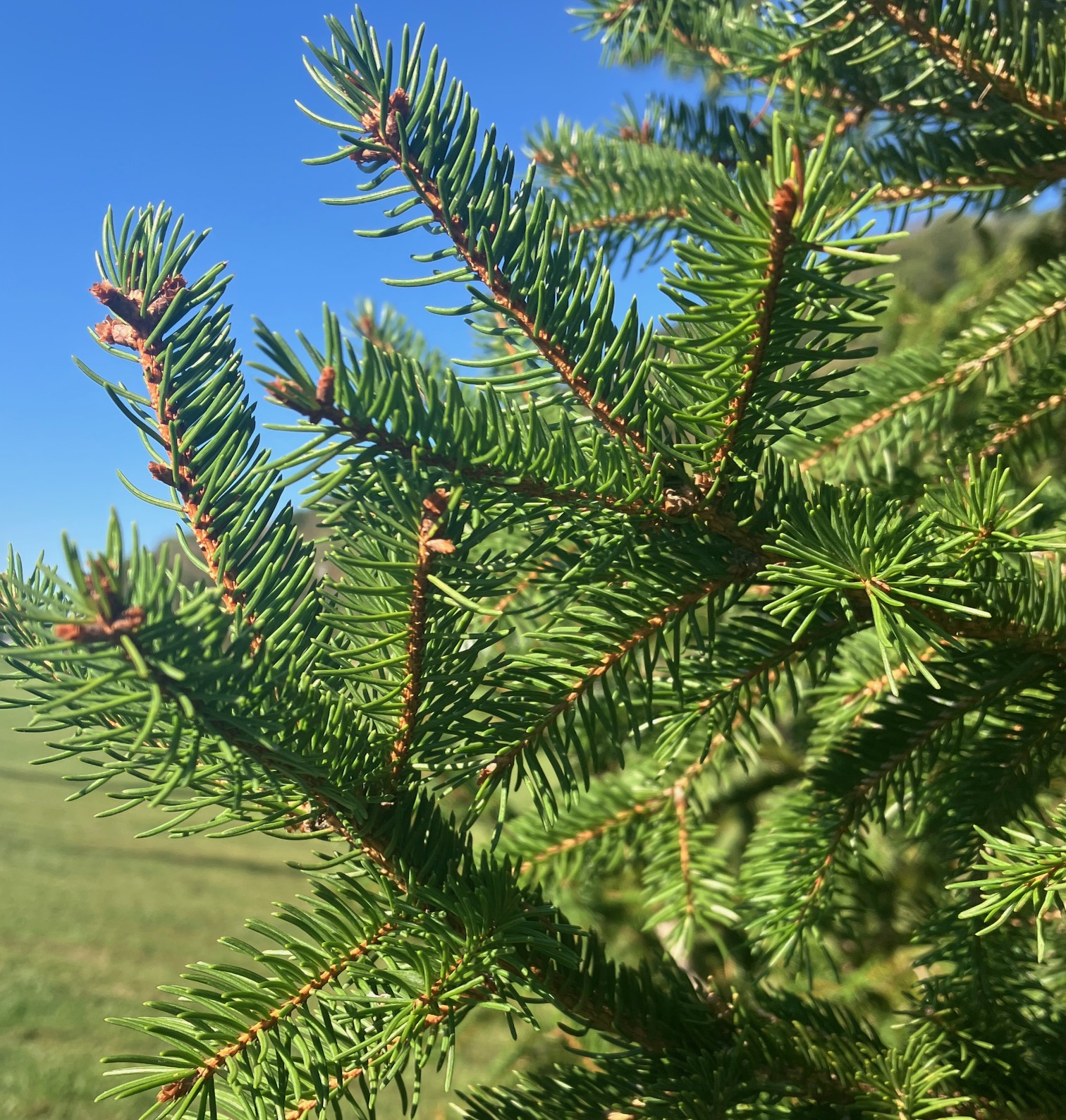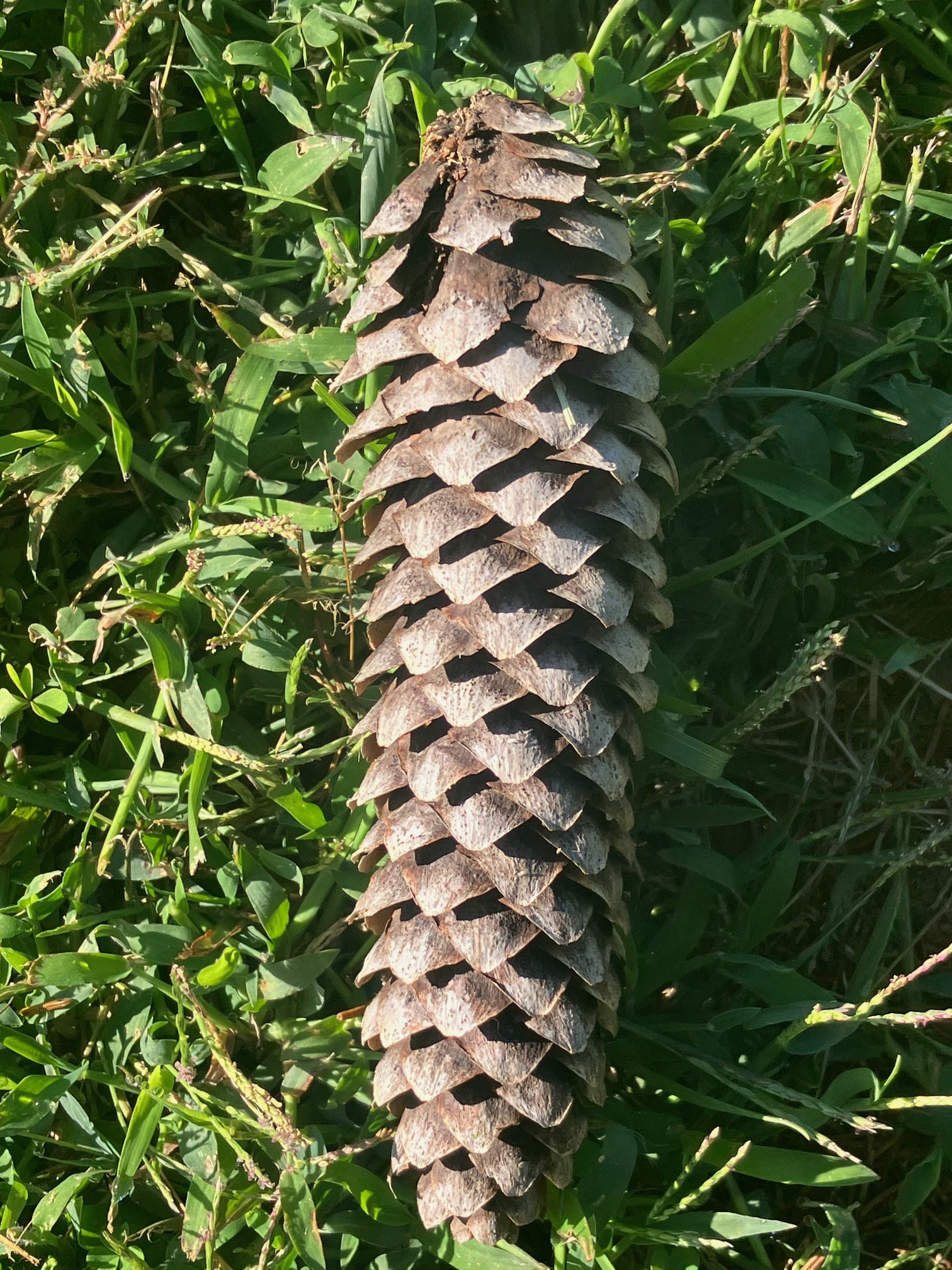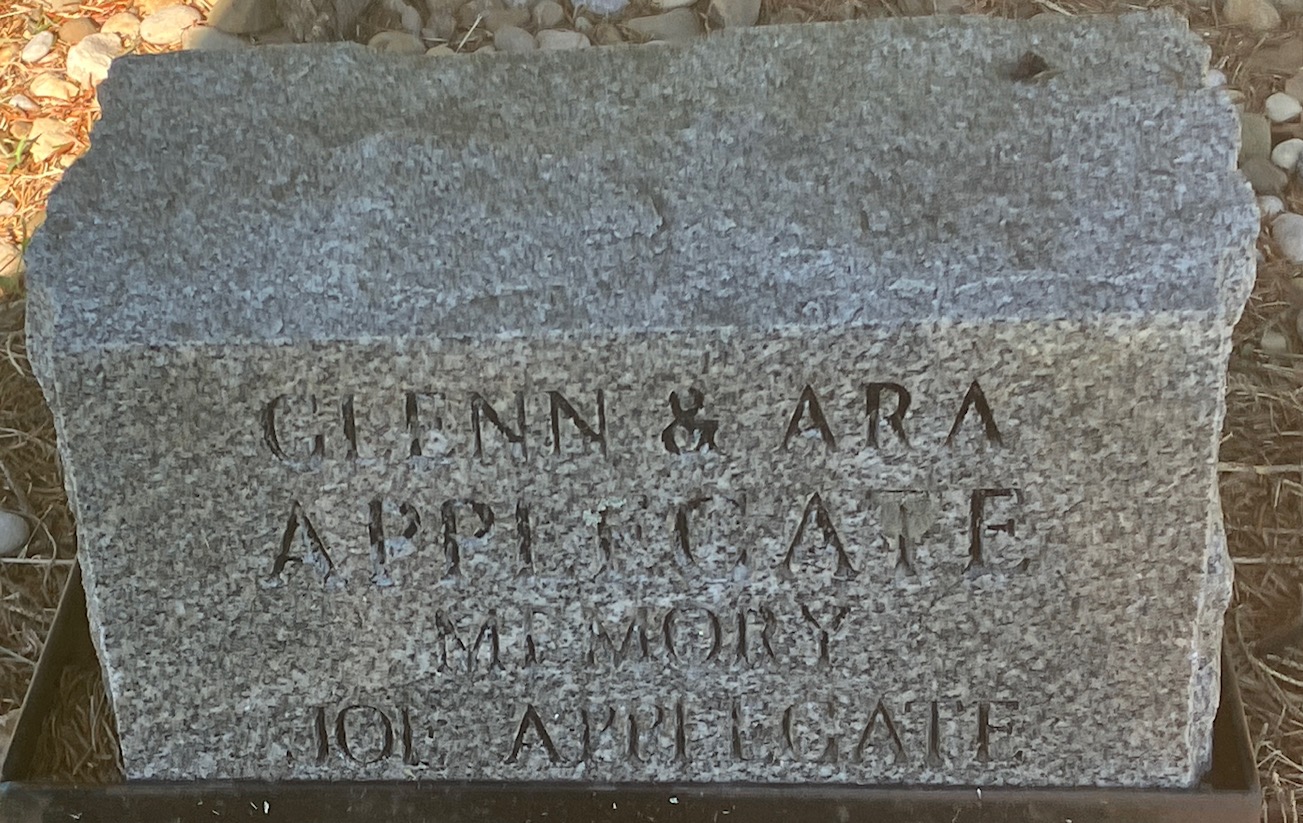
Photo Credits: Dr. Loretta W. Harvey
Scientific Name: Picea abies
Common Name: Norway spruce
Type: Needled evergreen
Family: Pinaceae
Native Range: Europe
USDA Zone: 2 to 7
Height: 40 to 60 feet
Spread: 25 to 30 feet
Bloom Time: Non-flowering
Bloom Description: Non-flowering
Sun: Full sun
Water: Medium
Maintenance: Low
Leaf Type/Shape: Evergreen
Attracts: Birds
Other Info: Winter Interest
Tolerate: Deer, Air Pollution
Invasive: No
Climate:
Easily grown in average, acidic, evenly moist, well-drained soils in full sun. Performs well in rich sandy soils. Prefers cool summer climates, and often grows poorly south of USDA Zone 7.
Noteworthy Characteristics:
Picea abies, commonly called Norway spruce, is a large pyramid-shaped evergreen conifer that is native to the mountains of northern/central Europe east to the Urals. In its native European habitat, it typically matures to 150 feet tall. It has been widely planted in cool and temperate regions of North American where it typically matures to a much shorter height (40-60 ft). This tree is noted for its rapid growth. Primary branches are slightly upturned (sometimes referred to as a “swag and swoop”). Branches are clad with spirally-arranged, four-sided, needle-like, deep green needles (modified leaves) which are attached at their bases to tiny pegs. Cylindrical, seed-bearing cones can be up to 9" long. Over 150 cultivars (mostly dwarf) have been named over the years and can be very difficult to distinguish one from another. The genus name is reportedly derived from the Latin word pix meaning "pitch" in reference to the sticky resin typically found in spruce bark. The species name refers to its similarity to the genus Abies (fir).
Problems:
Cytospora canker, wood decay, needle cast and rust may occur. Watch for aphids, bagworms, budworms and borers. Red spider mites can be troublesome.
Economic Uses:
Evergreen tree for large lawns, parks or woodland areas. Effective screen or windbreak in cold northern climates. Many dwarf cultivars of this species are available for foundational and rock garden plantings.
Donated by: Glenn & Ara Applegate
In memory of: Joe Applegate
Date Planted:
Arboretum Catalog Number: 0001
Photo Credits: Dr. Loretta W. Harvey



